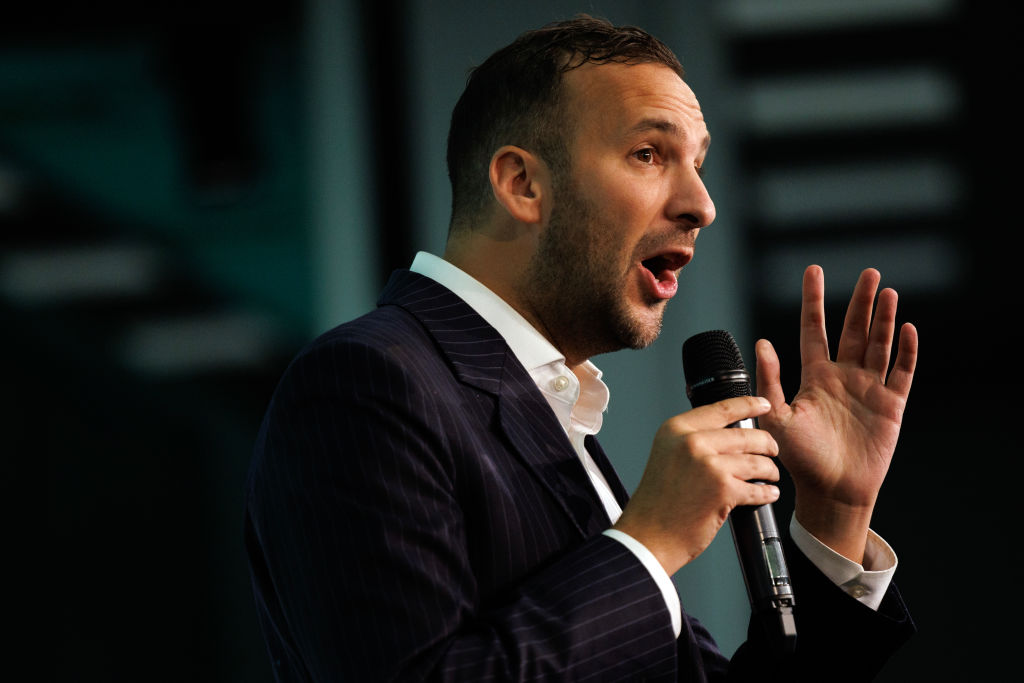The Green party leadership contest has finished and the results are in: Zack Polanski is the new leader of the Greens. The insurgent candidate has spent the summer ramping up his social media strategy, pushing his own brand of ‘eco-populism’ and participating in some pretty blistering debates. This has all paid off, with Polanski sailing to victory with 20,411 votes and 85 per cent of the vote. His rivals, former leader co-leadership contender Adrian Ramsay and Ellie Chowns, who ran on a joint ticket, receieved just 3,705 votes.
Today’s result doesn’t quite mark the end of the Green party’s leadership races, though. As Polanski is not an MP, another contest will take place among the party’s four sitting parliamentarians to decide who will take the mantle of Westminster group leader. The politicians will have to vote among themselves – with Polanski himself not allowed a say, meaning he could end up with a Westminster leader who was one of his rivals. The Greens also have two new deputy leaders: Rachel Millward and Mothin Ali.
Polanski’s victory will prompt questions about whether the party will move to enter into an electoral pact with Jeremy Corbyn’s new left-wing group
Polanski was the bookies’ favourite to win the race, but there was nervousness in his camp about both turnout and whether his social media-heavy strategy would reach Green party members not on TikTok. During his campaign – where he pitched himself as wanting to emulate Reform’s tactics to bolster support for the Greens – a number of new members joined the party, sparking accusations of entryism, which the new Green leader has denied. When he came up against Ramsay and Chowns, Polanski outdid his rivals in both energy and vision – still, there remains some scepticism about how his eco-socialism will work in practice.
In a number of hustings, Ramsay – who received the backing of former Green leader Caroline Lucas – insisted that the strategy he had employed with his former co-leader Carla Denyer was provably successful: it had given the party four MPs with the Greens taking 6.7 per cent of the vote across the UK. There are worries that Polanski’s left-leaning, radical style could put off older, more conservative voters who backed the party for its pro-environment policies – while Ramsay had previously argued that having a party leader in the Commons was important. Polanski has more of a grassroots focus, looking to galvanise support in communities and social movements rather than in the Chamber.
The contest at times became more heated than was expected, with Ramsay and Polanski getting pretty personal. On Iain Dale’s LBC show, Ramsay refused to say that he ‘liked’ Polanski – who was visibly hurt at his colleague’s animosity – while during a New Statesman interview, Polanski revealed that many of Ramsay’s former campaign team had switched sides to support his eco-populist approach.
While there won’t be any radical policy swerves in the next few days – as the Greens allow their membership to set the tone – Polanski’s victory will prompt questions about whether the party will move to enter into an electoral pact with Jeremy Corbyn’s new left-wing group, Your Party. Polanski has previously said that he is not opposed to an informal pact – something Ramsay and Chowns were against – while Corbyn suggested the groups could work together to further their similar social justice aims. Polanski should also expect questions on whether his stance on Nato – that the UK should leave – has changed.
With Sunday Times polling at the weekend suggesting that the Corbyn-Zarah Sultana outfit could hurt the Greens most, Polanski should be prepared to face questions from both the media and his membership on what his next steps will be. Next year, the environmentalists are hoping to gain their first Senedd seat in Wales and build on their past performances in the local elections. It won’t be long before Polanski’s eco-populism is put to the electoral test.







Comments